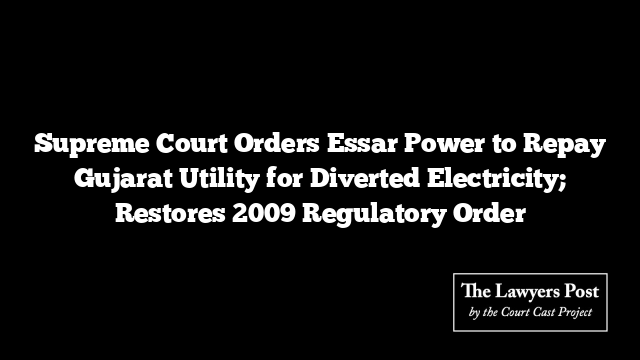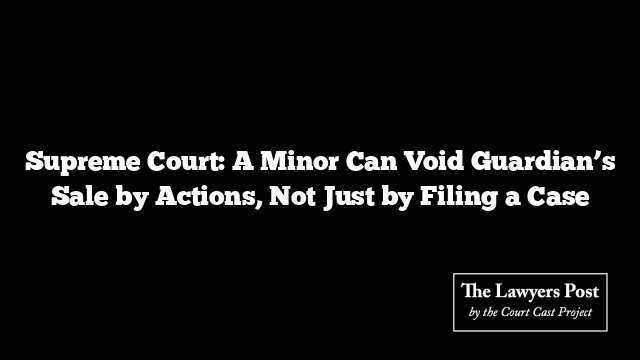In a decisive ruling ending a two-decade-old dispute, the Supreme Court has sided with Gujarat Urja Vikas Nigam Limited (GUVNL), directing Essar Power Limited (EPL) to reimburse fixed charges for electricity that was wrongfully diverted to Essar Steel.
A Bench of Justices Sanjay Kumar and Alok Aradhe overturned a 2025 decision of the Appellate Tribunal for Electricity (APTEL) and reinstated the original 2009 order of the Gujarat Electricity Regulatory Commission (GERC). The Court ruled that Essar Power had violated its Power Purchase Agreement (PPA) by failing to maintain the agreed supply ratio—58% to GUVNL and 42% to Essar Steel Limited (ESL).
“Once GUVNL did not receive the electricity for which such fixed charges had been computed and paid, it was entitled to reimbursement thereof—not as compensation, but on the principle of restitution,” the Court observed, clarifying that payments made for undelivered power could not be retained by the supplier.
The dispute originated from a 1996 PPA under which the then Gujarat Electricity Board was to receive 300 MW from Essar’s 515 MW plant, with the remainder going to Essar Steel. However, Essar Power diverted a larger share to its sister company, prompting the state utility to seek redress.
In 2016, the Supreme Court had already held that Essar Power must adhere to the proportional sharing arrangement and compensate GUVNL for any diversions. The fresh ruling goes further—affirming that GUVNL must also be reimbursed for fixed capacity charges corresponding to the power it never received.
The Bench criticized the tribunals below for disregarding contractual principles and adopting an inconsistent computation method. It noted that Essar Power, having earlier supported a half-hourly method for energy calculations, could not later oppose it when it worked against them.
The Court distinguished between compensation and reimbursement, explaining that the former makes good a loss due to breach, while the latter arises directly from the contract’s own provisions.
The GERC has now been tasked with recalculating the dues owed to GUVNL in line with the Supreme Court’s clarified directives.





